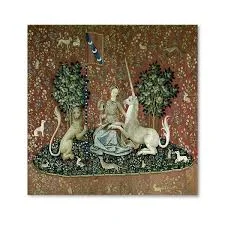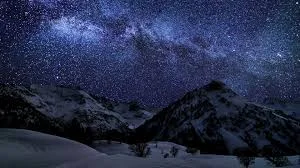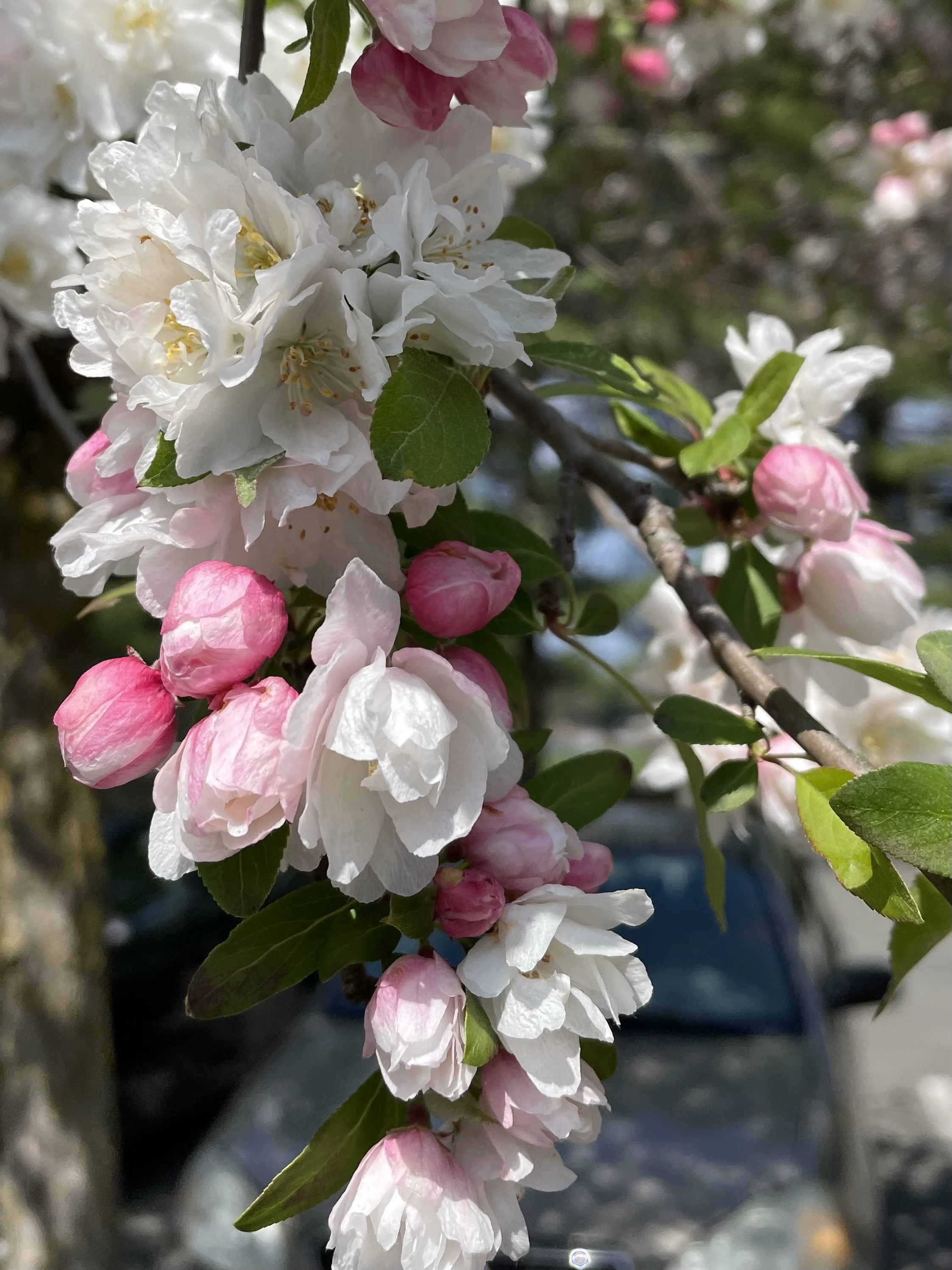Impossible Animal
Dear All,
We're moving on to animals, but since it's the Hanukah and Christmas season, the season of advent and the coming solstice, I want to focus on the pure animal of light. This is a kind of ideal of the animal, which is also an ideal of the human being as the archetypal animal. We find one version of it in the unicorn as evoked by Rilke in his poem about the medieval tapestry he had admired as a youth in Paris, in the Musee de Cluny, pictured above.
His unicorn sonnet is one of several in Rilke's Sonnets to Orpheus that touch directly on the theme of being. Here it is, my translation, original in the footer below:
O, this is the beast that doesn't exist.
They didn’t know, and therefore, even so,
they loved it: its gait, its stance, its neck,
all the way into the quiet gaze.
In fact, it was not. But since they loved it
a pure beast arose. They always left space,
and in the space, clear and open,
it lightly raised its head and barely needed
to be. They nourished it with no grain,
but only ever with the possibility of being.
And this gave the beast such strength,
it drove out of itself a forehead-horn. One horn.
Whitely it approached a maiden
and was in the silver mirror and in her.
"The bread is not our food," as a mealtime grace derived from Angelus Silesius has it. We feed each other, in relationship, by bestowing the possibility of being. Every moment of direct address gives this gift: an art we'll practice next Tuesday.
all blessings to all,
Michael
O dieses ist das Tier, das es nicht gibt.
Sie wußtens nicht und habens jeden Falls
– sein Wandeln, seine Haltung, seinen Hals,
bis in des stillen Blickes Licht – geliebt.
Zwar war es nicht. Doch weil sie’s liebten, ward
ein reines Tier. Sie ließen immer Raum.
Und in dem Raume, klar und ausgespart,
erhob es leicht sein Haupt und brauchte kaum
zu sein. Sie nährten es mit keinem Korn,
nur immer mit der Möglichkeit, es sei.
Und die gab solche Stärke an das Tier,
daß es aus sich ein Stirnhorn trieb. Ein Horn.
Zu einer Jungfrau kam es weiß herbei –
und war im Silber-Spiegel und in ihr.
Rilke: Sonnets to Orpheus II:4





